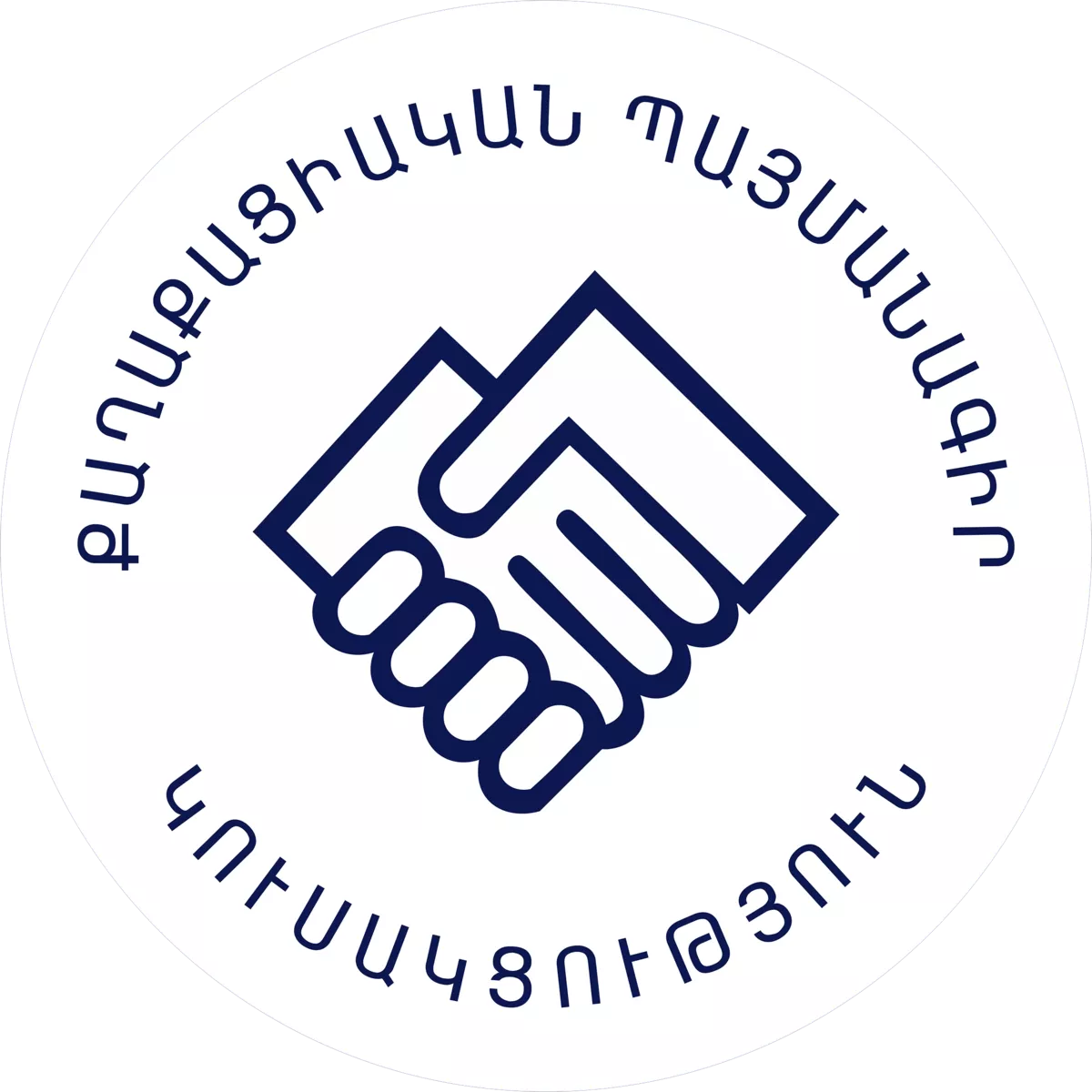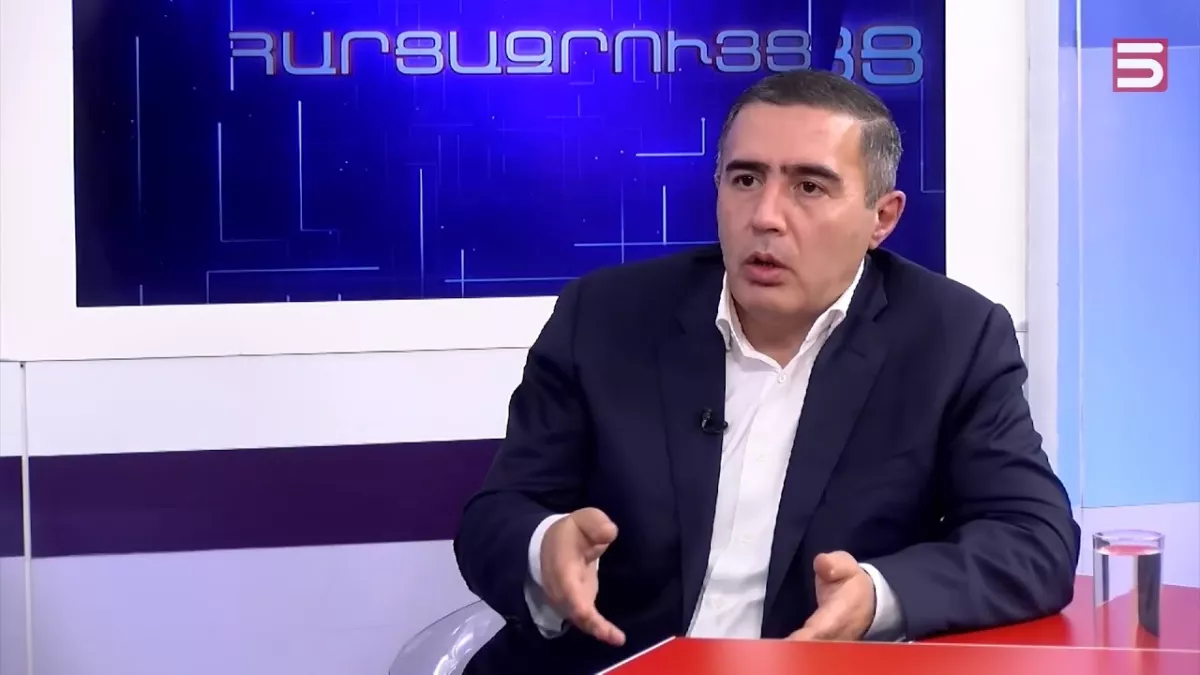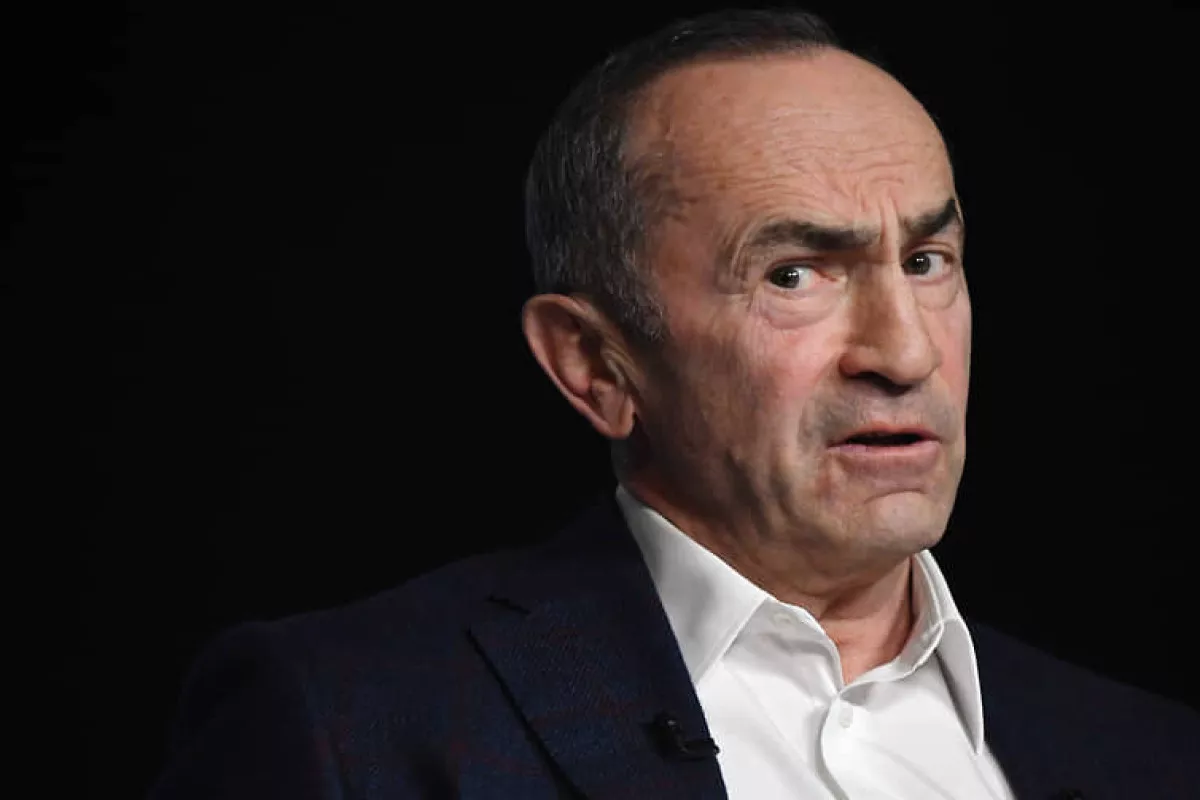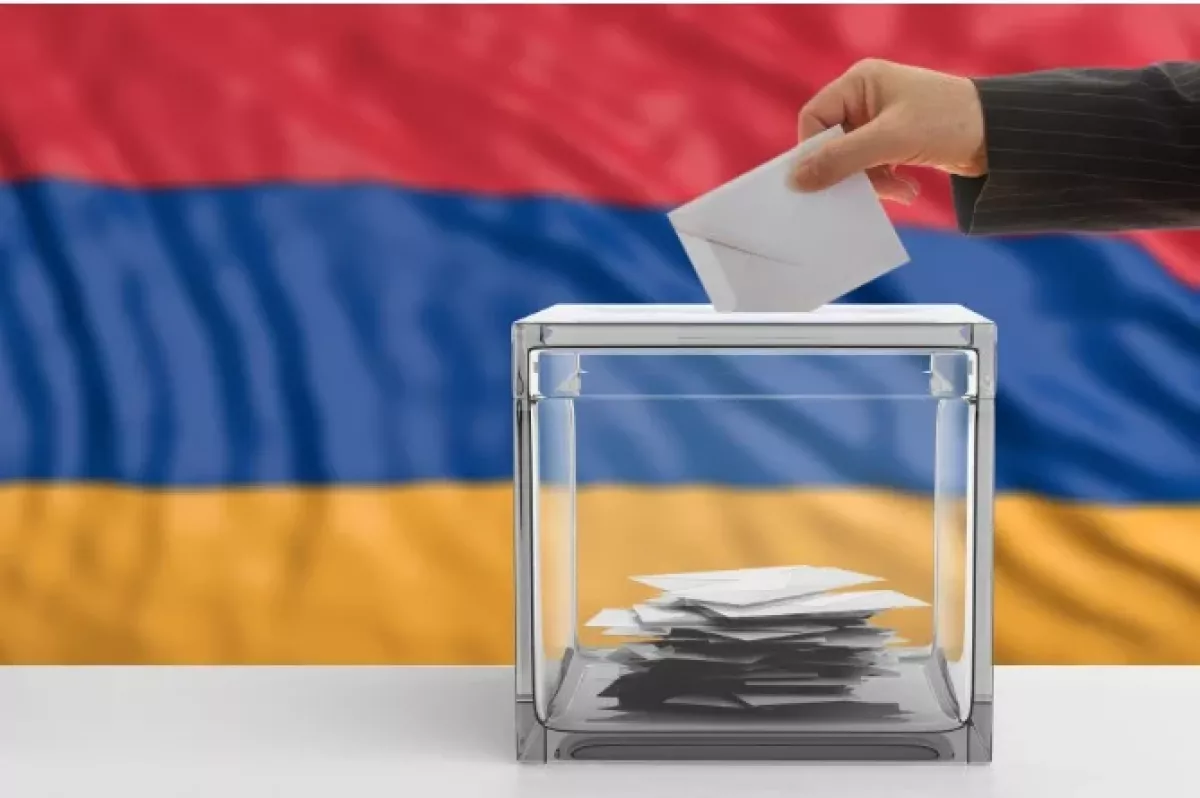Spy mania and the quagmire of Yerevan politics The Armenian deadlock
On May 5, yet another act of purely Armenian domestic political tragicomedy was staged. The main protagonist was the Speaker of the Armenian Parliament, Alen Simonyan. "I believe that Robert Kocharyan is a person with the status of a Russian spy in the Republic of Armenia. This is my opinion, I am a political figure, and I have the right to make political statements," he declared.
Simonyan described Kocharyan as a political figure serving Russia's interests and providing services in this regard. Speaking about the domestic political situation and the approval rating of the ruling party, "Civil Contract," Simonyan stated: "Large sums of money are being spent from abroad." "From the northern neighbour," noted the Speaker of the National Assembly, agreeing with the journalists' prompt.

According to him, Armenia is facing a hybrid war, which periodically intensifies, involving certain Russian experts with Armenian surnames. They are trying to "change the government," announce rallies, and so on. Simonyan is confident that these attempts will intensify as the 2026 elections approach and will have the opposite effect.
"Today's surveys also show that the ruling party is in first place, enjoying more support from the population than any other... I am sure that if the elections were held this Friday, 'Civil Contract' would win, gaining 50% +," he stated.
It quickly became clear: a response to his statements would follow as swiftly as possible. The only question was what kind of arguments the opposing side would use. Expectations were confirmed — the response was as primitive and foolish as possible, both in form and in the factuality and content.
"I think Alen Simonyan holds the status of an Azerbaijani junior sergeant-spy and a Turkish agent, and referring to his words is repulsive to any Armenian," said a statement issued by Bagrat Mikoyan, head of the office of Armenia's second president, in response to the statement made by Speaker of the Parliament.

Alen Simonyan, Bagrat Mikoyan, Nikol Pashinyan, and Robert Kocharyan, taken together, are not worthy of tarnishing the name of an Azerbaijani junior sergeant—or any other serviceman of any rank—by being compared to these losers of varying degrees of “staleness,” even in the course of their squabbles.
As for the spy mania, there's nothing surprising about it either. Armenian political forces, in their internal clashes, are simply incapable of offering any other kind of “argument.”
Yes, during his presidency (1998–2008), Kocharyan indeed pursued a policy focused on strengthening ties with Russia. He actively developed military-political cooperation and supported Armenia’s participation in the CSTO and EurAsEC. Under Kocharyan, Russia’s economic influence in Armenia grew significantly — in particular, key infrastructure assets (in energy and transport) came under the control of Russian companies. In his public speeches, Kocharyan repeatedly emphasised the importance of a strategic alliance with Russia.
In recent years, he has been supported by political forces that also advocate closer ties with Moscow and criticise the current leadership’s pro-Western orientation.
Yes, during his presidency (1998–2008), Kocharyan indeed pursued a policy focused on strengthening ties with Russia. He actively developed military-political cooperation and supported Armenia’s participation in the Collective Security Treaty Organisation (CSTO) and Eurasian Economic Union (EAEU). Under Kocharyan, Russia’s economic influence in Armenia grew significantly — in particular, key infrastructure assets (in energy and transport) came under the control of Russian companies. In his public speeches, Kocharyan repeatedly emphasised the importance of a strategic alliance with Russia.
In recent years, he has been supported by political forces that also advocate closer ties with Moscow and criticise the current leadership’s pro-Western orientation.

During the political crisis in Armenia in 2020–2021, Kocharyan received favourable coverage in the Russian media and support from certain Russian politicians, further reinforcing his image as a pro-Russian figure.
It is worth recalling that, despite all the rhetorical acrobatics of Armenia’s current leadership — and their efforts to present themselves as the “most European of Europeans” — the country has not officially withdrawn from the CSTO, instead opting for the status of a “frozen member.” Nor has Armenia, throughout Nikol Pashinyan’s tenure as prime minister, withdrawn from the EAEU — and seemingly has no intention of doing so. Armenia’s trade turnover with EAEU member states continues to far exceed its trade with the EU.
So, rhetoric is one thing — but the economy shows that there is little real difference between the actions of Armenia’s current and former leadership. Naturally, Alen Simonyan chose not to elaborate on that.
But silence is nothing compared to his primitive falsehoods. According to a poll conducted by the Armenian office of Gallup International Association (MPG) from January 20 to 22, 2025, among 1,100 respondents, only 11.3% of citizens said they would vote for the Civil Contract if parliamentary elections were held this coming Sunday. This is the lowest figure since 2018.

In March 2025, according to a new MPG poll, the rating of the Civil Contract party slightly increased to 11.8%. But that’s clearly a far cry from the 50-plus per cent Alen Simonyan keeps boasting about.
A separate poll conducted between February 27 and March 6, 2025, showed that 66% of Armenian citizens disapprove of Prime Minister Nikol Pashinyan’s performance. Only 9% fully approve of his work, while another 15.5% somewhat approve.
We have already heard Robert Kocharyan claim that the opposition could win the 2026 elections. But he, too, lies in a primitive and pitiful manner. According to polling data, trust in his political bloc does not exceed 5%, barely brushing against the 8% electoral threshold required for party alliances.
An additional obstacle for Kocharyan is his high disapproval rating and the necessity of forming a coalition with other opposition forces — a task complicated by internal disagreements and rivalry among them.
In short, the average Armenian citizen is saying to both Pashinyan’s supporters and Kocharyan’s camp the Shakespearean line: “A plague on both your houses.”
The current political elite — both the ruling and opposition factions — is facing a deep crisis of public trust and an inability to respond effectively to the challenges confronting the country.
In such conditions, whether the Pashinyan and Kocharyan camps brand each other and their leaders as resurrected dinosaurs or aliens, it won’t help boost their ratings. Armenia is destined for a prolonged domestic political crisis.








